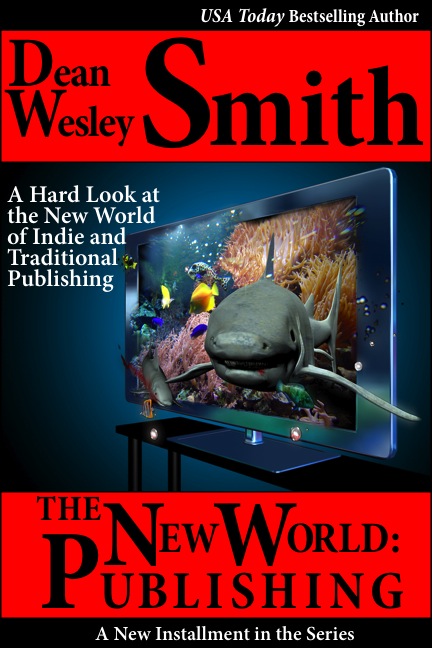The New World of Publishing: Who Really Cares?
Who Really Cares?

I did most of this as an answer to a good question on a recent post about traditional publishing and what is happening to it.
Actually, the question was about my opinion if traditional publishing was going to collapse or not.
Here is my expanded response:
Big five traditional publishing, as Passive Guy says, is in the middle of disruptive technology, and the big five are not responding in any sane manner. That’s really the problem. We are seeing a shift in the very nature of the business itself.
And so what you are hearing are the people invested in the old ways of doing things. So yes, the smart ones who see the problems are getting shrill. Not much else they can do.
Publishers, for about seventy years, have not sold directly to readers as they used to do. They have sold only to channels. And Amazon is now their biggest channel and it is pulling rank on them and that also has them shrill.
B&N (when it was the largest channel) did the same exact thing a few years ago, but no one seems to remember that.
Will any of the big five go back directly to readers in any real fashion? Nope. They wouldn’t even begin to understand how.
Will they go down the tubes? Yes and no, some will and some won’t.
Amazon is an American technology company, all but one of the big five publishers are overseas media conglomerations. Germany, France, and GB have a different set of standards in book publishing and that’s where the rules are being made for most of major book publishing in this country. So that is causing issues as well. (I do find it funny that an American company in battle with a French company is getting all the bad press for being unAmerican. (grin))
We will see, in my opinion, a ton of major imprints folding over the next few years, a bunch of publishing companies being shut down by their bosses overseas, and so on.
And we will see a rise in medium-sized, independently owned presses to fill in the gaps.
Book publishing is no longer a business centered only in the streets of New York. It has spread out and readers have far, far more books to pick from than ever before. And the number is growing every year.
And that’s a great thing for readers and not a good thing for the big overheads of those big publishers.
For example, Hachette does about 800 titles per year with huge overhead and a massive top-heavy staff. WMG Publishing here in Oregon does about 100 titles per year with tiny overhead and eight employees. We are a mid-sized publisher working fast and quick in the new system.
It will be publishers like WMG Publishing that will fill in the void being left by the traditional publishers. That is already happening and is historically normal.
But many major traditional publishers will remain, all owned by what will become the big four in short order, maybe down to the big three.
And uninformed writers, sadly, will continue to flock to bad traditional contracts and low advances and scam agents and in the process they will lose all their rights to their books. I don’t see that changing.
But I do see indie and small press publishing continuing to grow. And that is a very, very good thing for this business of publishing and readers in general.
So to me, honestly, what happens to the Big Five publishers is a shrug. It flat no longer matters to the future of books and publishing, and readers sure don’t care, so I honestly could’t care one way or another either, and I wonder why so many indie writers do care, to be honest.
Summary
—So readers don’t care who publishes the books they enjoy.
— Writers can make more money and have more control doing it themselves and selling directly to readers and they keep their rights to their own work.
— Bookstores can get as many (if not more books) from indie and small press, and sometimes with better discounts. (WMG Publishing gives 50% discounts plus free shipping.)
— Editors and proofreaders can work directly with writers and make more money than living in a tiny closet in New York and answering to corporate bottom line.
— Online distributors don’t care where they get their books to sell to readers.
— The future of books and publishing is safe in the readers and writer’s hands. Far safer than in the hands of accountants in New York.
So who of importance really cares about five large publishers, four of which are owned by major overseas conglomerates?
They could go out of business, they could remain in business. Makes no difference to me. Shrug.
And I doubt, very highly, that it will make the slightest bit of difference either way to reading and publishing and literature going into the future.